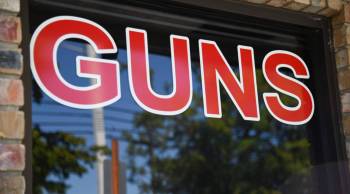Choosing whether or not to divest
TESS VIGELAND: This week, President Bush tightened economic sanctions against Sudan – despite criticisms from some analysts who say it won’t end the bloodshed in Darfur.
But that hasn’t stopped individuals from trying to create their own economic sanctions – by divesting from the region.
Eric Reeves is a professor at Smith College – and he’s also an expert on Sudan and the divestment campaign. Eric, let’s start by pointing out that you aren’t exactly impartial in this debate – you advise human rights organizations around the world,
ERIC REEVES: Human rights organizations, advocacy groups and indeed humanitarian organizations as well.
VIGELAND: In talking about divestment, one of the main criticisms that we hear is that it really doesn’t have a big effect. If that is the case, why should ordinary investors try to alter, say their mutual funds or portfolios to avoid companies that do business in these countries.
REEVES: It’s simply wrong to assume that the divestment campaign has had no effect. On the contrary, major European corporations have suspended all operations in Sudan precisely because of this campaign. That’s not symbolism, that’s efficacy.
VIGELAND: What about the opposing argument that perhaps economic investment and development could help a troubled region like this?
REEVES: If we look back at the last 18 years, none of the investment has been in the marginalized regions, or benefiting the marginalized populations of Sudan. Sudan’s the size of the United States east of the Mississippi. The only part of Sudan that has seen the benefit of these billions of dollars of foreign investment is a Delaware-sized area around Khartoum, Abdurman, and this very narrow sliver of the Nile river valley.
VIGELAND: Could you compare this situation, say to the anti-apartheid campaigns of the 80s in South Africa and how much individual investors and the actions they took had any sort of effect on what was going there.
REEVES: Economists are divided about whether or not the divestment campaign in South Africa had any real effect. But the big difference is electronic communication, the speed with which equity markets, stock markets, are able to assess the views of individual investors, information that may bear on the attractiveness or unattractiveness of a given equity. The two dozen or so European and Asian companies doing business with a genocidal regime have been lit up by means of media coverage, by means of advocacy efforts, in ways that were simply impossible 20 years ago. And it has changed fundamentally the speed with which the markets can assimilate information. And thus you can see a much more rapid effect on share price and that’s what these companies are most fearful of, a precipitous drop in share price because of the divestment campaign.
VIGELAND: So what are some ordinary things people can do if they decide they want to have some part in affecting change in Sudan, through their bank accounts, through their retirement accounts.
REEVES: The first thing and easiest thing to do is simply to call your broker or your investment manager or your pension fund manager and say “Am I invested in any of these two dozen companies that are complicit in sustaining a genocidal regime through commercial or capital investment?” Simply to ask the question is to put all these issues on the radar screen in a big way. These questions may have vague answers or they may not get satisfactory answers, in which case you persist. But the questions will register. If enough people do that, these stocks will start to become radioactive. All of this is covered by the news media. All of this certainly makes its way into the calculations about appropriate share value by traders.
VIGELAND: Eric Reeves is a professor of English at Smith College. Thank you very much for coming into the studio. We appreciate it.
REEVES: Glad to be here.
There’s a lot happening in the world. Through it all, Marketplace is here for you.
You rely on Marketplace to break down the world’s events and tell you how it affects you in a fact-based, approachable way. We rely on your financial support to keep making that possible.
Your donation today powers the independent journalism that you rely on. For just $5/month, you can help sustain Marketplace so we can keep reporting on the things that matter to you.


















